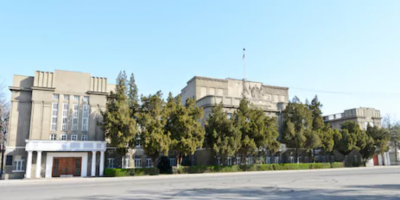
The Supreme Court of the Kyrgyz Republic is now publicizing incidents of alleged out-of-process interferences in judicial activities online. The initiative represents an important measure in the context of the judiciary’s broader efforts to increase transparency and inform the public, and also works to prevent any undue influence or pressure on judges. The decision was first announced in March 2018 and reemphasized during a meeting with the press in August 2018.
To date, 10 letters alleging judicial interference have been made available from members and factions of the Kyrgyz Parliament, representatives of the Presidential Administration and other entities.
“In order to exclude any interference, the Supreme Court and local courts should post on the court’s website all out-of-process requests, including exerting pressures on the judge in any form – bribery, threats and other forms of out-of-process treatment”, said Ms. Ainash Tokbaeva, Chairwoman of the Supreme Court of the Kyrgyz Republic.
The decision to publish such incidents was taken by the Kyrgyz Republic’s Council of Judges with active support of the now-completed USAID-IDLO Judicial Strengthening Program by creating the Supreme Court’s website. Support for this initiative is ongoing through the USAID-IDLO Increasing Public Trust in the Judiciary program in Kyrgyzstan.
|
Public engagement in Kyrgyzstan IDLO’s work in Kyrgyzstan has included a number of initiatives working to better engage and inform the public about the activities and work of the judiciary. Program activities have trained journalists on how to effectively communicate new laws to the public. The launch of a Court-TV series aimed to empower citizens and improve access to justice by raising awareness of their rights. And, e-justice technology works to increase transparency and accountability around the judiciary’s activities for better pubic oversight. |
Since 2011, IDLO has been working with the Kyrgyz judiciary on reforms relating to budget and judicial financing, as well as training, legal education capacity building for judges. While previous programming in the country included public outreach components, IDLO’s newest efforts focus on the goal of helping the judiciary increase public trust and reversing negative public perceptions of the judiciary through enhanced transparency and public legal awareness initiatives.
“Creating the requirement and a mechanism for judges themselves to report improper meddling has required a strong will from the judiciary and also will require further commitments and solidarity among judges to report any meddling routinely,” commented IDLO’s Kyrgyzstan Country Director, Fred Huston. “These self-help actions really are needed to improve the independence of the judiciary.”
The Supreme Court’s decision and implementing activities since are an important milestone as IDLO’s public trust program continues to work towards increased openness, accountability and public oversight in Kyrgyzstan.
IDLO’s work in Kyrgyzstan reflects its commitment to strengthen institutions and empower people and groups to realize their rights, as envisaged in its Strategy 2020. These efforts align with Sustainable Development Goal 16 to build strong institutions and provide access to justice for all.

